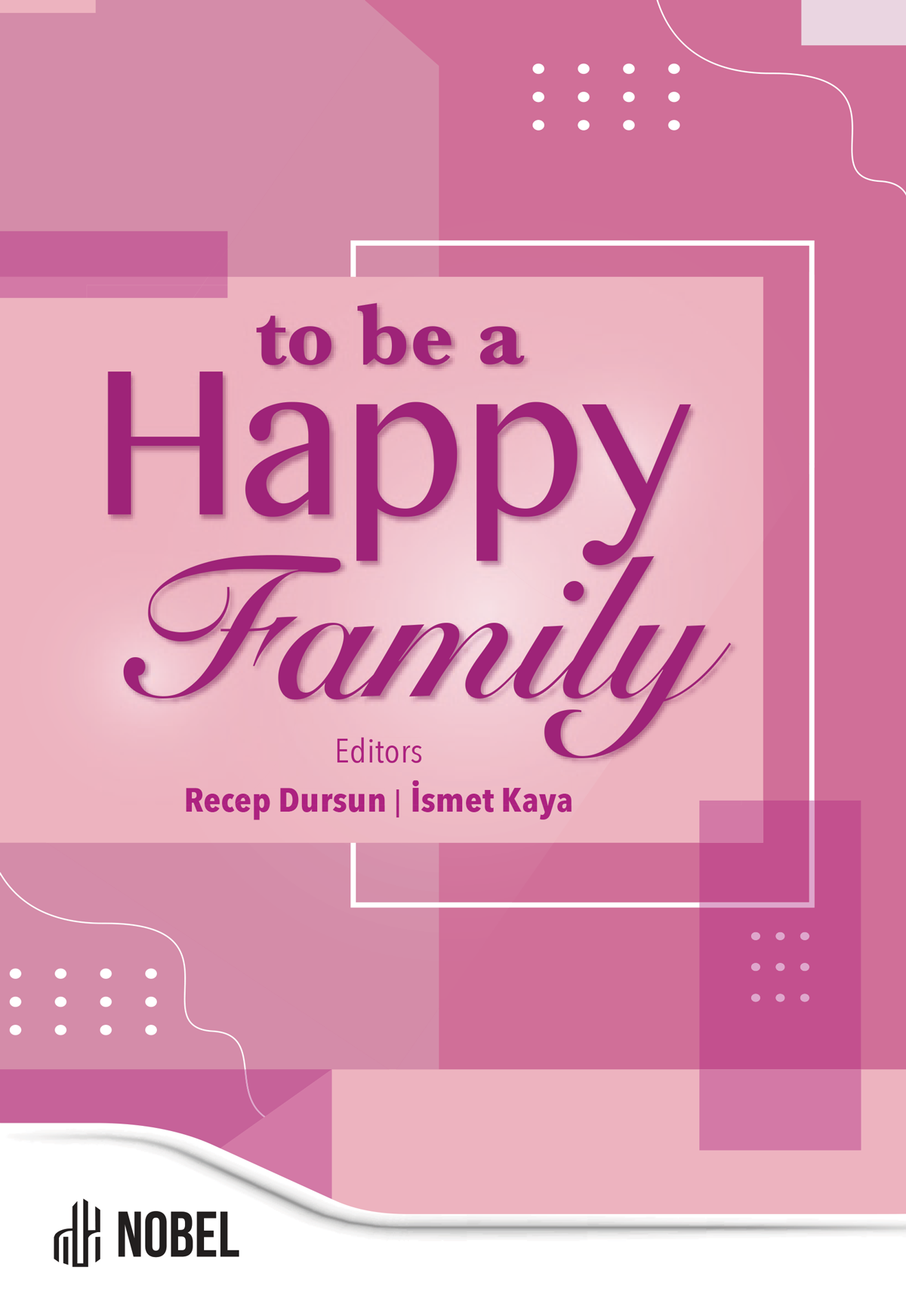Marriage Periods
Inci Aydin (Author)
Release Date:
This chapter deals with marriage processes and the emotional and psychological states experienced by couples during these processes. Love and affection form the basis of relationships, and the dating period is the process of couples getting to know each other and taking the relationship to marriage. According to Alan Lee’s "Colors of Love" theory, there [...]
Media Type
Buy from
Price may vary by retailers
| Work Type | Book Chapter |
|---|---|
| Published in | To Be a Happy Family |
| First Page | 19 |
| Last Page | 37 |
| DOI | https://doi.org/10.69860/nobel.9786053359500.2 |
| Page Count | 19 |
| Copyright Holder | Nobel Tıp Kitabevleri |
| License | https://nobelpub.com/publish-with-us/copyright-and-licensing |
Inci Aydin (Author)
PhD, Pedagogue & Family Counselor, Psychoanalysis Psychological Counseling Center
https://orcid.org/0009-0008-8771-9021
3İnci Aydın was born in Ankara in 1991 and completed her secondary and high school education there. She studied at Ankara Gazi University, Department of Psychological Counselling and Guidance from 2007 to 2011. After successfully completing her undergraduate education, she pursued a master’s degree at Ankara Gazi University Social Sciences Institute between 2013 and 2019. In February 2019, she successfully defended her thesis titled ""Child Abuse in Turkey and Social Policies to Prevent Child Abuse: The Diyarbakır Example.""
İnci Aydın has worked in various settings, dealing with traumatic disorders in children, child abuse (including incest and paedophilia cases), and behavioural disorders in children (such as anger and discipline problems, sibling jealousy, sleep disorders, nail-biting, bedwetting, and faecal incontinence). She has also addressed attention deficit and hyperactivity disorders, applying psychotherapies, fairy tale therapy, and play therapy for children and adolescents. Additionally, she provides therapy for marriages, children, adolescents, and adults. As a family counsellor, she worked for a period on child abuse in Amsterdam, Netherlands.
İnci Aydın has numerous published articles on child, female, and male psychology. She has participated in many media programmes, including TRT1 Radio, TRT GAP Radio, Business Channel Türk TV, Uçan Kuş TV, and Uzay News Channel.
Adnan Menderes Üniversitesi, Eğitim Fakültesi, Eğitim Bilimleri Dergisi, Üniversite Öğrencilerinin Aşk Stillerinin Demografik Değişkenler ve Ana Babaya Bağlanma ile İlişkisi, Hülya ERCAN, Haziran 2016:26
Türk Eğitim Bilimleri Dergisi, Romantik İlişkilerde Umut: Bağlanma Stilleri ve Olumlu Olumsuz Duygu,.Aralık 2018:141, Elvan YILDIZ AKYOL, Şerife IŞIK
Senemoğlu, N. (2011):79. Gelişim Öğrenme Ve Öğretim Kuramdan Uygulamaya. Ankara: Pegem Akademi Yayıncılık
İnternet: https://tr.wikipedia.org/wiki/Maslow_teorisi, Son Erişim Tarihi: 14.05.2024.
Sezen, L. (2005). Türkiye'de evlenme biçimleri. Atatürk Üniversitesi Türkiyat Araştırmaları Enstitüsü Dergisi, 11(27), 185-195.
Canel, A. N., (2011):11, Evlilik ve Aile Hayatı, Ankara, 1.Baskı, T.C. Aile ve Sosyal Hizmetler Bakanlığı, Aile ve Toplum Hizmetleri Genel Müdürlüğü
| onix_3.0::thoth | Thoth ONIX 3.0 |
|---|---|
| onix_3.0::project_muse | Project MUSE ONIX 3.0 |
| onix_3.0::oapen | OAPEN ONIX 3.0 |
| onix_3.0::jstor | JSTOR ONIX 3.0 |
| onix_3.0::google_books | Google Books ONIX 3.0 |
| onix_3.0::overdrive | OverDrive ONIX 3.0 |
| onix_2.1::ebsco_host | EBSCO Host ONIX 2.1 |
| csv::thoth | Thoth CSV |
| json::thoth | Thoth JSON |
| kbart::oclc | OCLC KBART |
| bibtex::thoth | Thoth BibTeX |
| doideposit::crossref | CrossRef DOI deposit |
| onix_2.1::proquest_ebrary | ProQuest Ebrary ONIX 2.1 |
| marc21record::thoth | Thoth MARC 21 Record |
| marc21markup::thoth | Thoth MARC 21 Markup |
| marc21xml::thoth | Thoth MARC 21 XML |

